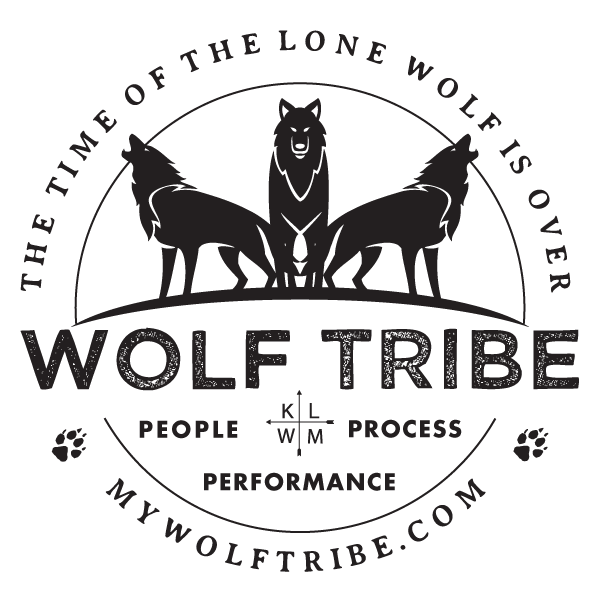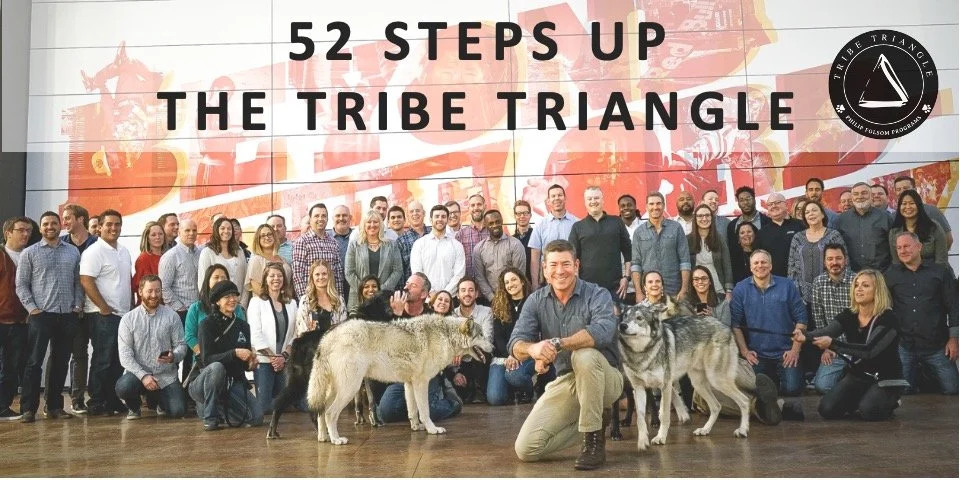Step 47 Up the Tribe Triangle: Vulnerability
Vulnerability is a key component to sustainable success because it creates trust and reinforces strong relationships. Vulnerability is also central to the innovation and risk-taking that powers growth in every area of your family and organization. These are central pillars of maintaining high performance. Vulnerability can also be risky if not implemented skillfully and intentionally.
Vulnerability is a popular and misunderstood term these days. It is often equated with weakness and sensitivity but they are very, very different things. The difference between vulnerability and weakness is that vulnerability is a choice. It is intentionally sharing authentic challenges and feelings.
Benefits of Vulnerability
Leaders are people who make decisions that affect other people. Vulnerability is the act of intentionally choosing to be open and honest in sharing our struggles.
Intentionally choosing transparency during challenging times unlocks the potential for collaboration and reciprocity. People can only engage and support people that are open to it. This is the primary lever of creating kinship in your family and work team.
Vulnerability is also a powerful key to modeling resiliency and grit. By being honest about our experiences we unlock increased feelings of belonging in our relationships. Belonging creates empathy and these are the primary drivers of resiliency. You will see and feel increased connection to your people the more vulnerable you are and the challenges that would normally erode your team morale and performance will begin to augment it through the process of trauma bonding which is a function of vulnerability.
An additional component of resiliency is how quickly we recover from adversity. This is also accelerated by vulnerability. To recover from the stress of doubt and defeat efficiently we need to treat our people differently than when they are operating at their peak. We need this as grace as well. Being honest and transparent with your people about your needs expedites the emotional and psychological healing process. In every spiritual practice in the world, vulnerability is central to both faith and grieving which are both core tenets to enduring and overcoming the adversities of life.
Even the ability to ask for help and delegate skillfully requires accessing vulnerability. In order to scale, grow and maintain success at high levels you will have to delegate. This means surrendering control, which for leaders is a vulnerable process because we are the ones who are ultimately responsible for the outcomes of projects.
Ultimately, true vulnerability is the ability to take risks and fail forward. It is staying in the arena when we know we can’t control the outcome. It is also the ability to expose ourselves authentically to our team which is a major factor in the intimate relationships of kinship and all forms of sustainable success.
Challenges and Best Practices of Vulnerability
Vulnerability can only be implemented wisely and skillfully with the people that are not only aligned with you but also share kinship and the ability to navigate healthy conflict. These are the first three levels of the Tribe Triangle. This does not mean you can’t be honest and sincere until the Sustainable Success level but too much vulnerability to soon in the wrong circles can contain blowback.
In the vast, pride-based world we all live in, vulnerability can be seen as oversharing and it is. In the same way we must reserve our most precious resources for those special people in our kinship system, we must also reserve our most sensitive and intimate feelings for people that are safe, trustworthy and in an empathetic community. Safety, trust and empathy are all components of kinship.
In the pride-based, lone wolf world, liabilities will often be taken advantage of. There is a smart and practical level of discernment that must be implemented in these non-kinship communities. This does not imply being dishonest, or not expressing passion or ambition. It means acting appropriately based on the situation and community.
There are also times when your family and team will require you to armor up and face challenges without showing weakness. This is a valuable skill to possess but it can only be a short-term event and this is the phase of sustainable success. Be very mindful of this, Tribe Leader.
Vulnerability drives all forms of sustainable success including innovation, delegation and resiliency. Embracing and modeling vulnerability is another aspect of culture that you may well have to model first.
It is the transition from an independent, guarded and superficial world view to the much older and more sustainably success strategy of interdependence. This is tribe.
Vulnerability is a necessary component of feeling and experiencing life fully and authentically. This is the core of meaning for you and your team. It makes all the unavoidable challenges of the journey worthwhile. Vulnerability is telling the truth with courage.
Click here To watch the video of Step 47: Vulnerability
Leaders Must Write and Speak
Answer these questions in your journal by really writing them down. Discuss them with at least one of your most important people and really listen to their response.
Do your family and work team express themselves with genuine vulnerability? If so, do you see it driving delegation, innovation and resiliency or is there deeper levels of vulnerability and authenticity you can model and support?
Are there places and people that you have made the mistake of being too vulnerable and been taken advantage of? Is that experience stopping you from being vulnerable with your family and team now?
Ubuntu,
Philip Folsom





